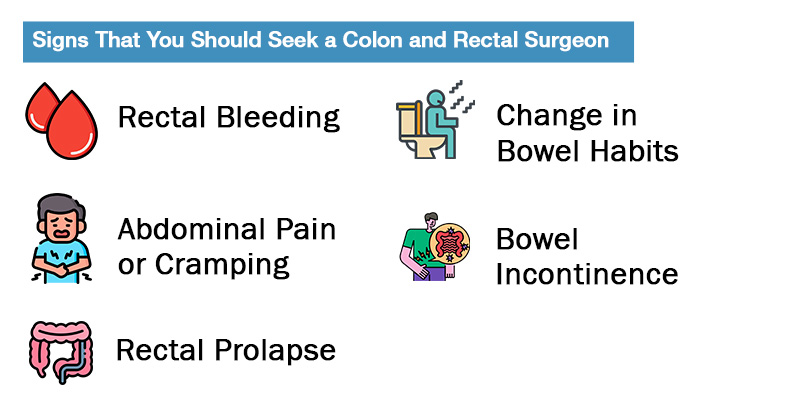-
 Call Now:
8010 552 552
7595 838 844
Call Now:
8010 552 552
7595 838 844
-
 Email Me:
clinicahealthkolkata@gmail.com
Email Me:
clinicahealthkolkata@gmail.com
The colon and rectum play an essential role in eliminating waste from the body. However, conditions such as inflammatory bowel disease, colon cancer, and rectal prolapse can severely impact these organs, leading to a variety of symptoms and complications.
While primary care providers or gastroenterologists can manage some of these conditions, others may require the expertise of a colon and rectal surgeon.
If you have symptoms involving your lower gastrointestinal tract, you need to begin by seeing a general physician, then the doctor might refer you to a colorectal surgeon as per your condition. In this blog post, we will explore the situations where it’s crucial to seek the assistance of a colon and rectal surgeon.
A colon and rectal surgeon is a medical specialist who focuses on the diagnosis, treatment, and management of conditions that affect the colon, rectum, and anus. They are trained to perform diagnostic procedures, surgical interventions, and provide ongoing care for patients with various colon and rectal conditions.
Rectal bleeding is the most common symptom of any kind of colon and rectal conditions, including haemorrhoids, anal fissures, inflammatory bowel disease, and rectal cancer. If you experience rectal bleeding, it’s crucial to see a colon and rectal surgeon as soon as possible for an accurate diagnosis and appropriate treatment.
Abdominal pain or cramping can be a sign of several colon and rectal conditions, including diverticulitis, inflammatory bowel disease, colon cancer, and appendicitis. If you experience persistent or severe abdominal pain or cramping, a colon and rectal surgeon can perform a thorough evaluation to determine the underlying cause of your symptoms.
Changes in bowel habits, such as diarrhoea, constipation, or narrow stools, can indicate various colon and rectal conditions, including inflammatory bowel disease, colon cancer, and rectal prolapse. If you experience a sudden change in bowel habits or if your symptoms persist, it’s essential to see a surgeon.

Bowel incontinence, which is the loss of bowel control, can be a symptom of various colon and rectal conditions, including anal sphincter dysfunction and rectal prolapse. If you experience incontinence, a colon and rectal surgeon can perform a thorough evaluation and recommend appropriate treatment options.
Rectal prolapse is a condition in which the rectum protrudes through the anus, leading to pain, discomfort, and bowel incontinence. If you experience rectal prolapse, a colon and rectal surgeon can recommend appropriate treatment options, including surgery, to correct the prolapse and alleviate your symptoms.
Colon cancer is a prevalent type of cancer that can be detected early through routine screening. Colon and rectal surgeons recommend that individuals begin screening for colon cancer at age 45 or earlier if they have a family history of the disease. If you’re due for a colon cancer screening, a colon and rectal surgeon can perform the necessary procedures to detect and remove precancerous polyps.
Colon and rectal conditions can be debilitating and affect your overall quality of life. If you experience such symptoms it’s crucial to see a colon and rectal surgeon immediately for an accurate diagnosis and appropriate treatment